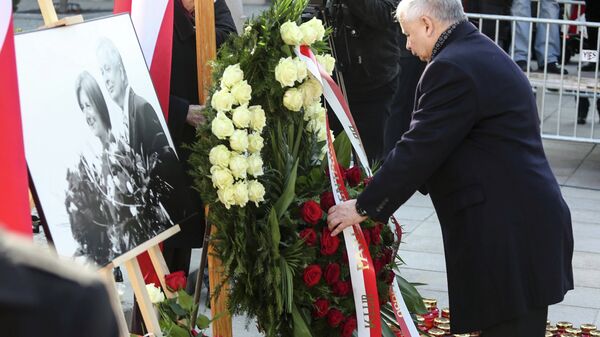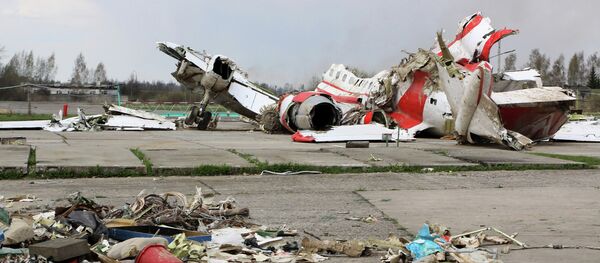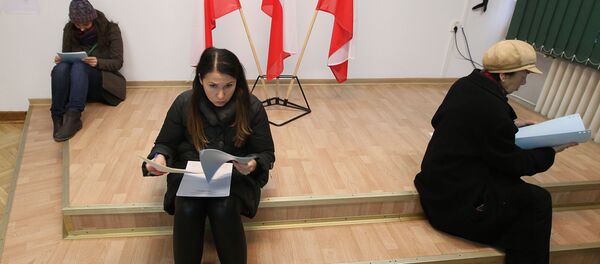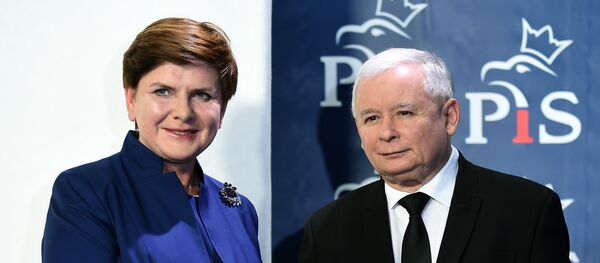The president's plane went down on April 10, 2010 in Smolensk, Russia, resulting in the deaths of the president and dozens of Polish officials, who were on their way to a reconciliatory meeting with their Russian counterparts to pay tribute to the Polish officers killed by Soviet security forces during WWII.
Earlier this year, Polish investigators offered newly–decrypted evidence from the presidential plane's black box recordings, concluding that a "third party" had repeatedly interfered with the flight crew. The data also confirmed that Air Force General Andrzej Blasik, who was present in the cockpit up to the last moment, had repeatedly pressured the pilots to make attempts to land, despite warnings of bad weather at the Smolensk military airfield, including requests from a Russian air traffic controller to divert the plane to another airport.
On Saturday, a presidential spokeswoman attended the Fourth Smolensk Conference in Warsaw, a gathering of experts devoted to challenging the official crash report's findings. As Gazeta Wyborcza explained, experts at the Smolensk Conference believe that the only possible explanation for the catastrophe is that an explosion onboard the president's plane caused the crash. The Conference has also demanded that the results of the official commission be invalidated.
Reading a statement from the president, the presidential spokeswoman emphasized that "the findings presented at the Smolensk Conferences up to this point have been valuable and relevant achievements. The official reports –both of the [Russian] MAK Commission and the [Former Prime Minister Leczek] Miller Commission cannot compete with the facts."
Speaking with Radio Poland, Professor Marek Zilich, an expert on international aviation law and a member of the Miller Commission, noted that "President Duda's letter signifies that he considers the work of the Smolensk Conference to constitute new findings, new data, new evidence, and if this is the case, it requires the State Commission on Aircraft Accidence Investigation to resume its work."
Radio Poland emphasizes that as the investigation resumes, the Commission's report will now be under the direct supervision of Poland's incoming Minister of Defense –Antoni Macierewicz, a figure on the right-wing of the Law and Justice Party, which is itself a right nationalist party to the right of the moderate right Civic Platform government it defeated.
Even before taking up his post, Macierewicz has already gotten into hot water over a number of statements, including a suggestion that the 'Protocols of the Elders of Zion have some truth,' and his comment that Poland and Russia have factually been in a state of war since Kaczynski's plane crash in 2010.
The politician himself, seated next to the presidential spokeswoman at the Smolensk Conference on Saturday, has said that the president's plane exploded in the air.
The president's initiative isn't the only controversy brought up by the incoming Law and Justice Party. Last week, Polish Foreign Minister designate Witold Waszczykowski told Polish media that Warsaw would take Russia to court if Moscow continued its "foot-dragging in the investigation" over the crash. Waszczykowski claimed that in hanging on to some of the wreckage for its own investigation, Russia was "using [it] for political purposes," adding that "we must therefore respond in a political manner."





